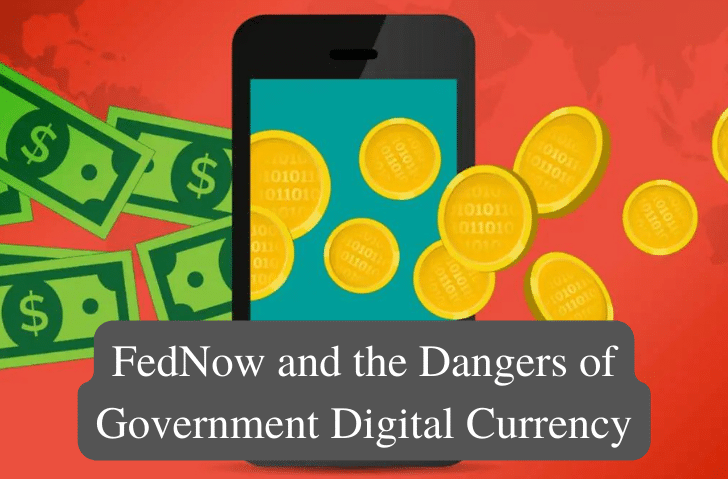The Federal Reserve is currently developing a new instant payment system called FedNow. This service aims to enable banks and financial institutions to offer real-time payments to their customers, allowing for the instant transfer of funds 24/7. FedNow could have a significant impact on how individuals manage their money, as it will make it easier and faster to send and receive payments, pay bills, and transfer funds between accounts.
For individuals, the introduction of FedNow could provide numerous benefits, such as increased convenience, faster access to funds, and the potential for reduced fees. However, as with government-backed digital currencies, there may also be potential risks associated with the implementation of FedNow. Privacy and cybersecurity concerns could arise, as the centralized nature of the system might make it more vulnerable to hacking attempts and data breaches.
Let’s delve into three key dangers associated with government-backed digital currencies and discuss the upcoming FedNow service, which will have significant implications for how money moves for individuals.
- Privacy and Surveillance Concerns: As with FedNow, one of the primary concerns with government-backed digital currencies is the potential loss of privacy and increased surveillance. Unlike decentralized cryptocurrencies like Bitcoin, a central authority (i.e., the government) would control these digital currencies. This centralization could enable the government to monitor and track transactions in real-time, potentially leading to a loss of financial privacy for users. In the worst-case scenario, this information could be misused by governments, infringing on individual rights and civil liberties.
- Centralization of Power and Control: Another danger associated with government-backed digital currencies is the centralization of power and control. By controlling the issuance and management of a digital currency, governments would have the ability to manipulate its value, potentially leading to inflation or deflation. This control could also be used to enforce economic sanctions or restrict access to funds for individuals or groups deemed as threats. In the hands of an authoritarian government, this centralized control could potentially be used to suppress opposition and stifle dissent.
- Cybersecurity Risks: Government-backed digital currencies would rely heavily on technology and internet connectivity, making them susceptible to cyber-attacks. Hackers could potentially exploit vulnerabilities in the system to steal funds, manipulate transactions, or disrupt the overall functioning of the digital currency. While governments would likely invest in robust security measures, the potential for cyber-attacks remains a significant concern. Additionally, in the event of a large-scale attack, the economic consequences could be severe and far-reaching.
Government-backed digital currencies present both potential benefits and risks. It is crucial to consider the potential dangers, such as privacy concerns, centralization of power and control, and cybersecurity risks, as we navigate the future of digital currency. Additionally, with the upcoming implementation of FedNow, individuals will need to weigh the benefits of increased convenience and speed against potential risks to their financial privacy and security. As with any new technology, striking a balance between innovation and the protection of individual rights and interests is key to safely adopting government-backed digital currencies and payment systems like FedNow.
Retirement is always a good place to have solid counsel and a Certified Financial Planner that understand retirement income distribution. Make sure to contact me in order to stay retired.

